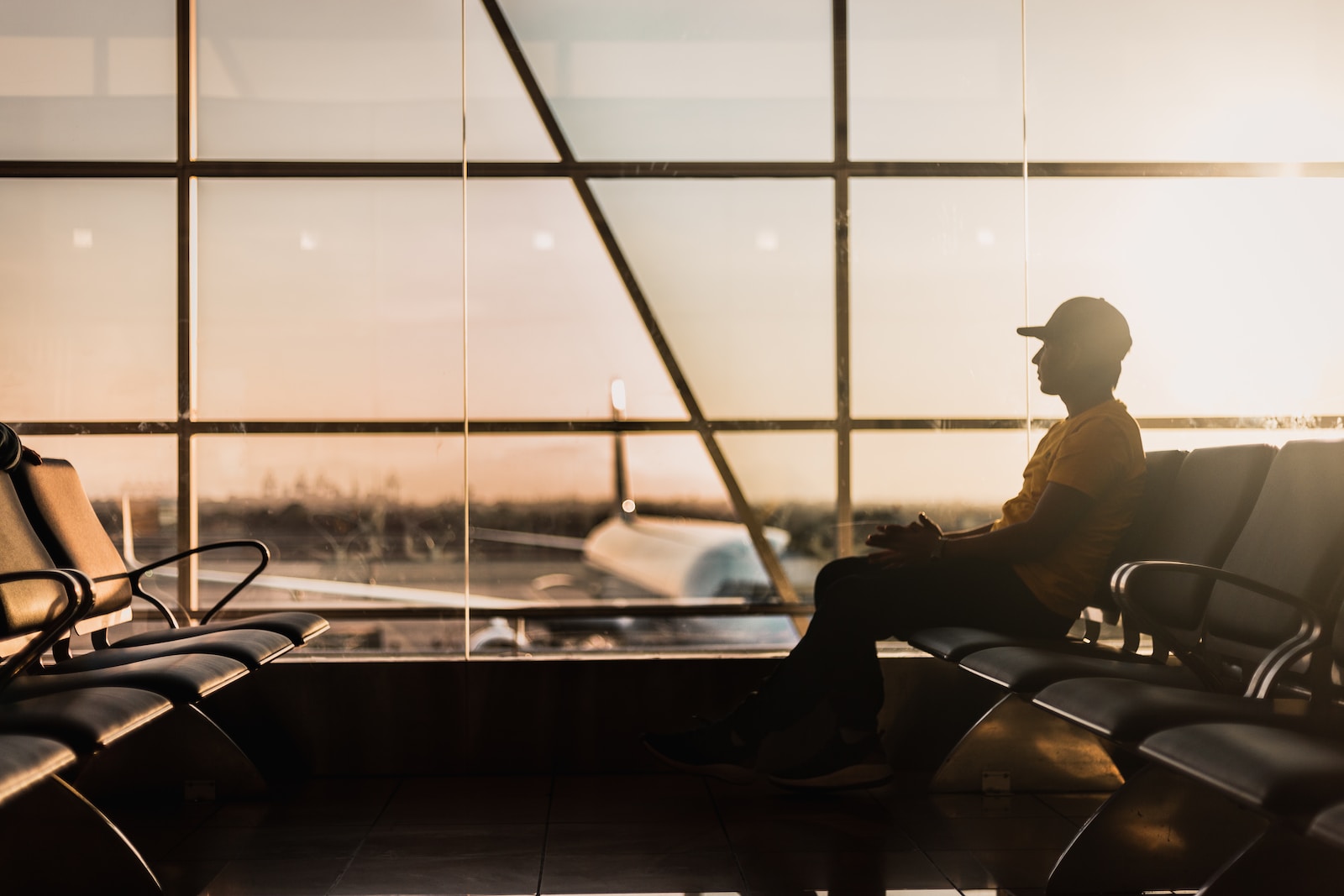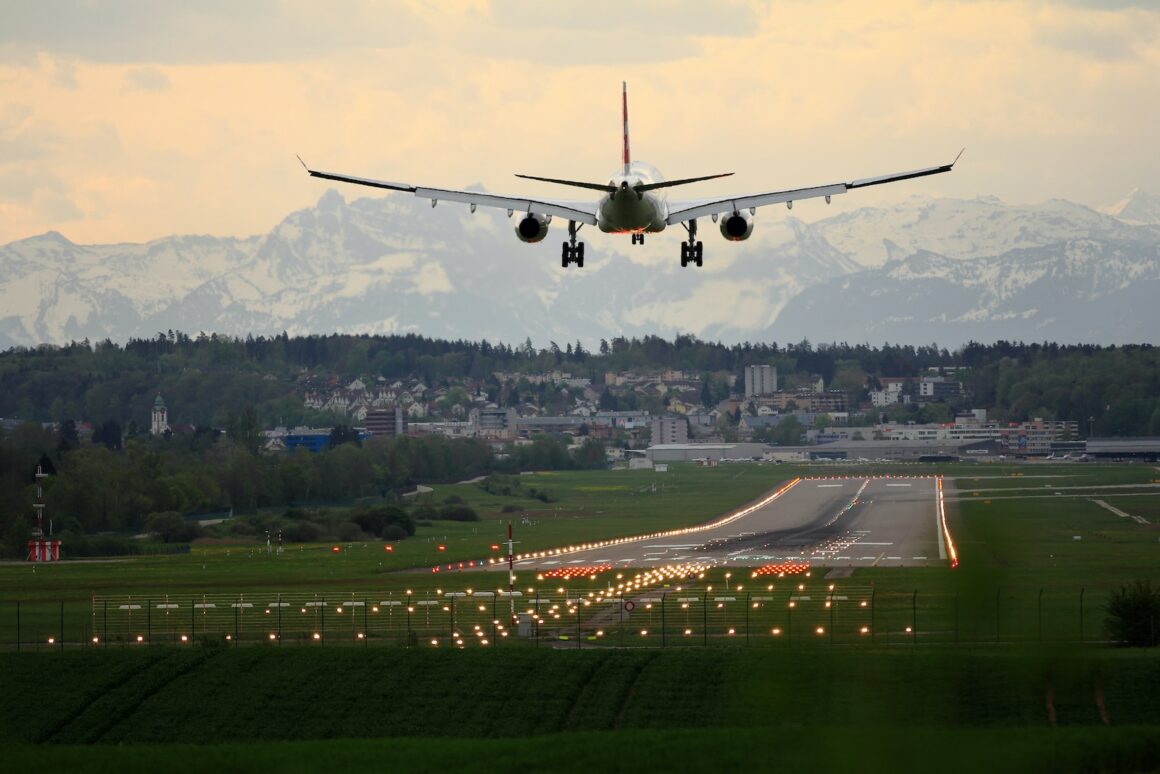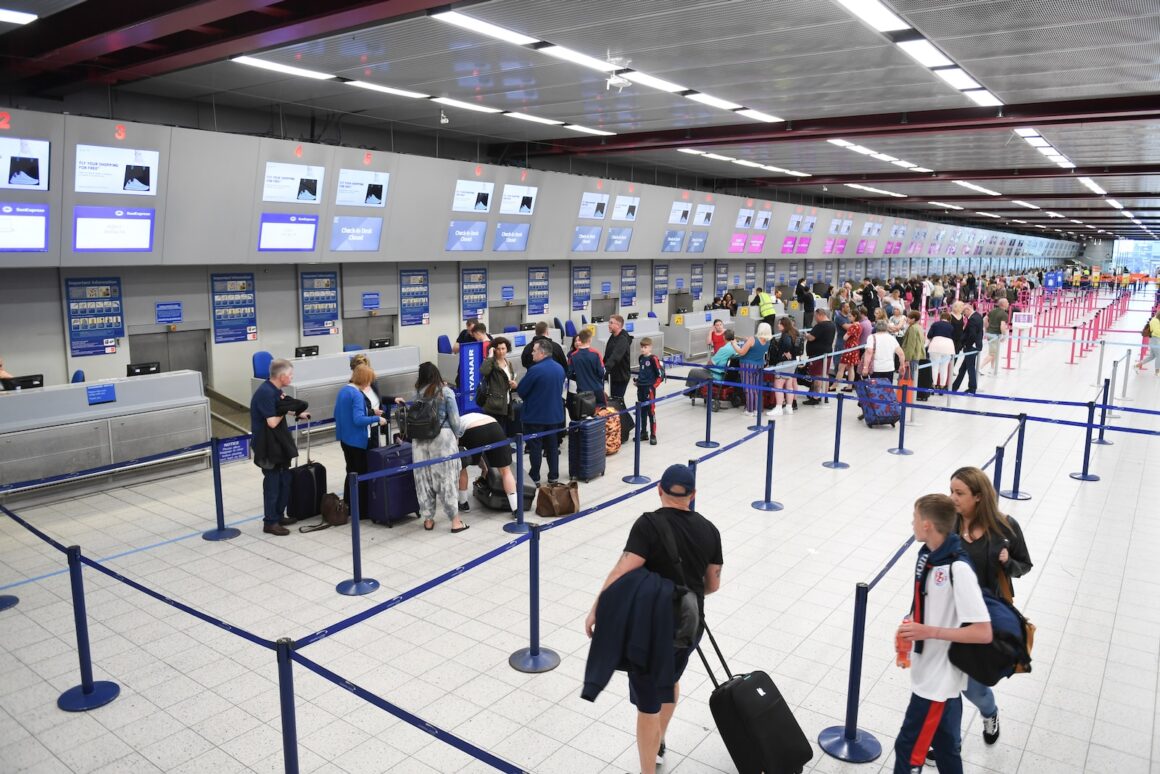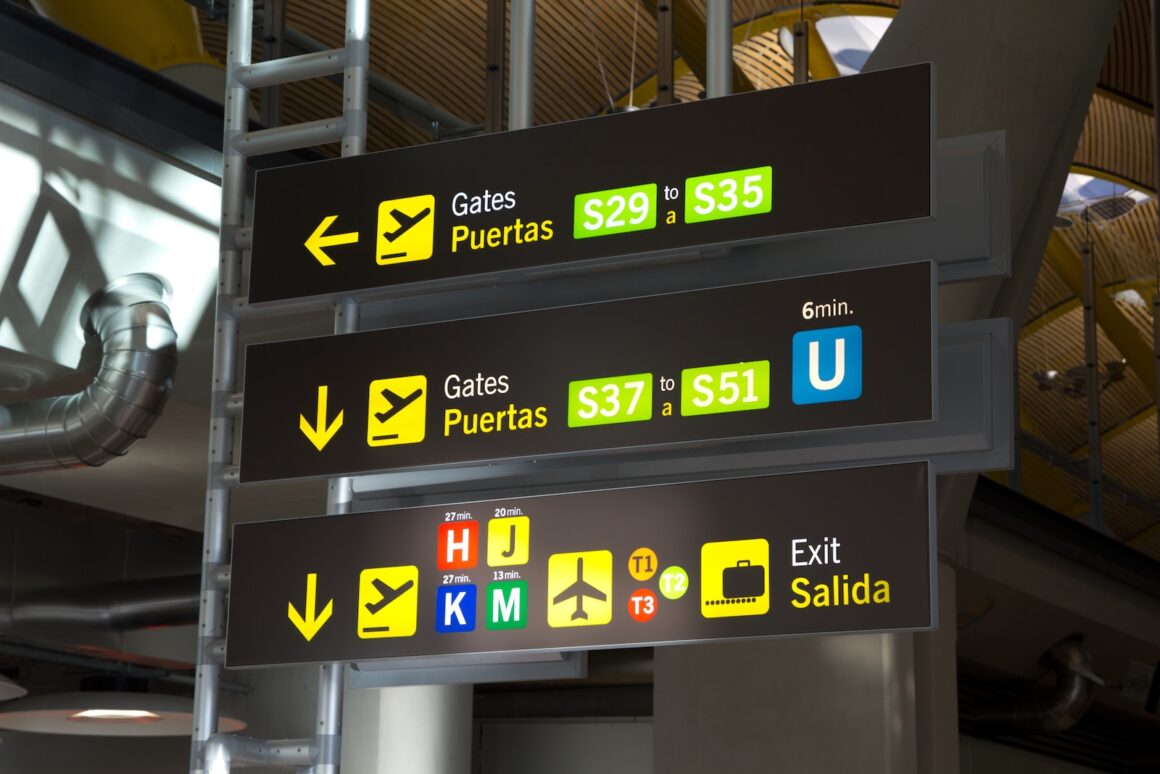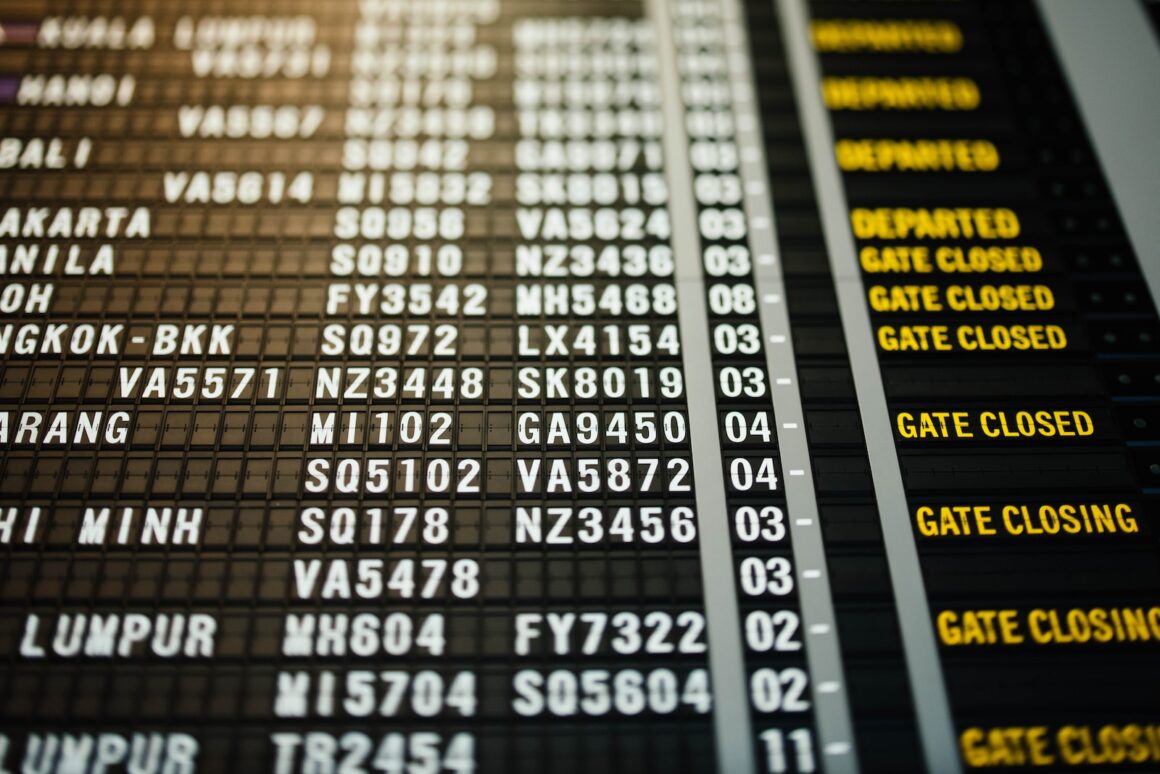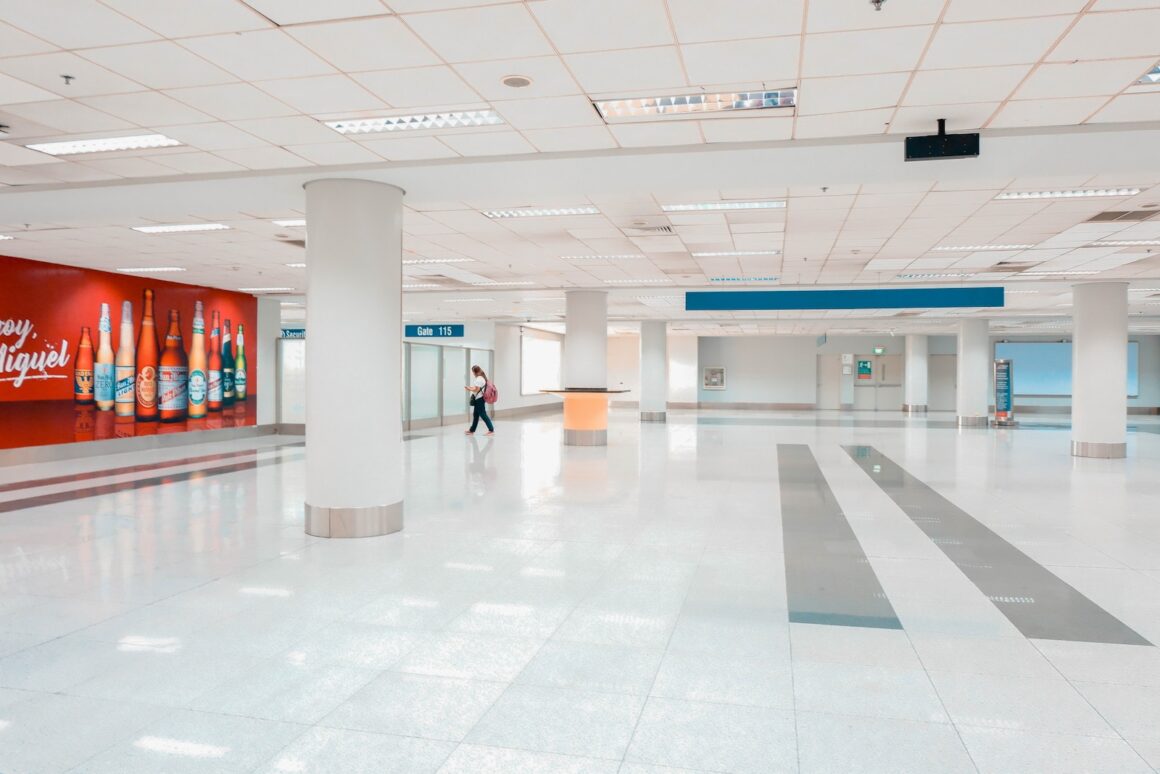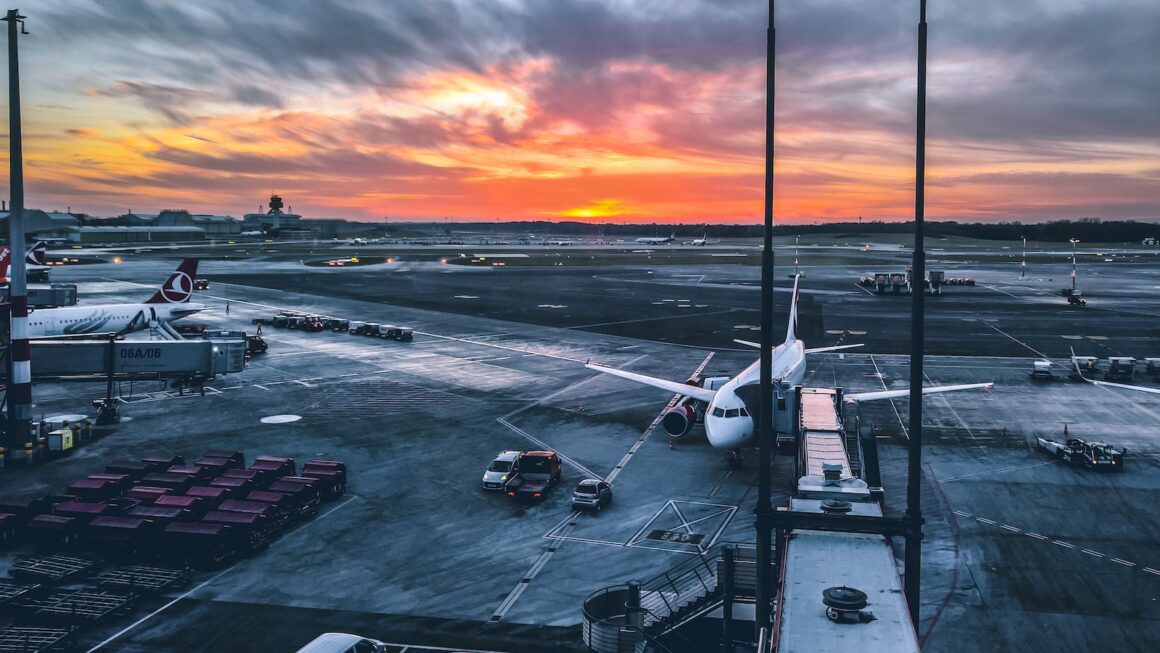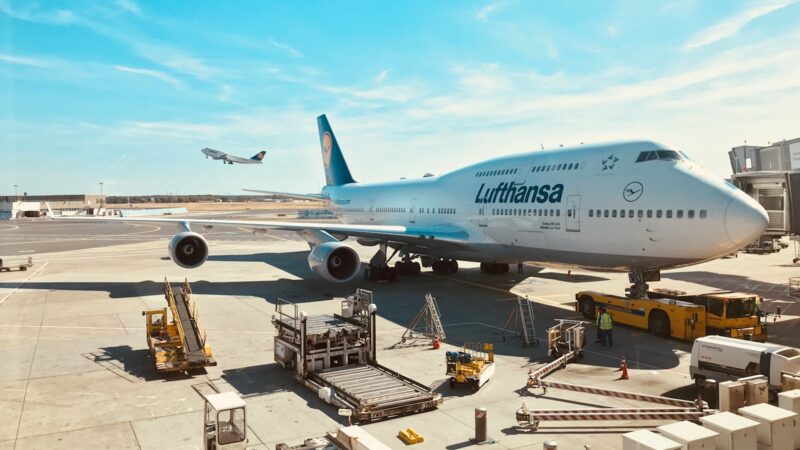Imagine you’ve meticulously organized your upcoming trip, selecting pristine accommodations and mapping out thrilling activities. You’re filled with anticipation, only to receive an unexpected email from the airline altering your travel plans. Would you know what to do if an airline cancels your flight?
While minor adjustments can be insignificant, some rescheduled flights could result in arriving later at your destination, having a nonstop flight transformed into multiple layovers, or having an impossibly short connection time. In particularly troublesome cases, your flight may even be canceled, leaving you to wonder how to navigate the choppy waters of airline logistics.
Don’t worry! We understand how stressful these situations can be for travelers, and we’re here to guide you through the diverse options and protections available. With the help of insights from pilots, airline staff, and the Department of Transportation, we’ll showcase the measures that can empower you and the rights you have as a traveler in these unforeseen circumstances. Let’s embark on this journey together and ensure your air travel experience is smooth sailing.
Table of Contents
ToggleEmbrace the Silver Lining
In the world of travel, weather, the COVID-19 pandemic, and other factors can cause flight delays or even significant changes in the schedule. Fear not, as these alterations might actually work in your favor. If an airline makes a considerable adjustment to your flight, like a 90-minute difference, you are granted two options: a) request a full refund, or b) ask to be placed on an alternative flight without incurring change fees or additional charges.
Think of this as a serendipitous opportunity. If you were having second thoughts about the trip, now you can get your money back! On the other hand, perhaps your initial booking was for a layover-filled journey simply because it was cheaper. In light of the recent change, you can now seize the chance to switch to a more convenient, nonstop flight without any extra cost. Embrace this unforeseen twist and use it to enhance your travel experience.
If the airline cancels your flight and you do not want to rebook:
When an airline cancels your flight, it’s essential to know that you are entitled to a cash refund, even if you have a non-refundable ticket. This is a federally mandated requirement, ensuring fair treatment for passengers.
However, airlines might attempt to steer passengers toward accepting a voucher instead of a refund. To successfully navigate this situation, consider the following three options:
- Try a different agent: If you’re having a hard time getting a refund from the airline, don’t be afraid to hang up and call again. Different agents may have more flexibility in granting refunds, so a friendly approach and persistence can help you get the desired result.
- File a complaint with the DOT: If the airline still denies your refund request, you have the right to file a complaint with the Department of Transportation. This might put pressure on the airline to rectify their decision and grant you the refund.
- Dispute the charge with your credit card: As a last resort, reach out to your credit card company and dispute the charge. If you paid for the flight but did not receive the service, credit card companies often provide reimbursement through their chargeback policies.
Remember, knowing your rights and standing firm can make all the difference when seeking a refund for a canceled flight. Stay friendly, be proactive, and don’t let obstacles deter you from claiming what you’re entitled to.
If the Airline Makes a Significant Change to Your Itinerary:
Most airlines are flexible when it comes to rebooking your flight if they make a notable change to your schedule. Keep in mind that the definition of a significant change can vary among airlines—generally, it means a change between 90-120 minutes or even up to four hours for some carriers like American Airlines. Additionally, any change that reduces your connection time below the airline or airport’s minimum connection time can also be considered significant.
When facing a significant schedule change, you should first look for alternative flights by the same airline that best fit your timetable. Don’t be concerned about fare differences: if there’s an available seat on your desired flight, the airline is likely to accommodate you free of charge, regardless of the current fare.
Once you’ve chosen your preferred alternative, contact the airline to have your itinerary altered. If the schedule change is dramatic enough and no suitable replacement flights are available, you may have the option to request a cash refund, even for typically non-refundable fares. The threshold for refund eligibility depends on the airline—United has a two-hour mark, Delta requires a 90-minute change, and American demands a four-hour change.
However, be cautious when opting for a refund, as finding replacement flights at a reasonable price might be challenging, especially for last-minute bookings. Remember, flights booked closer to the departure date can be quite costly. So, weigh your options carefully and choose the one that best suits your needs and budget.
If the Airline Cancels Your Flight and Reschedules You on a Different Flight
Imagine you planned to board a flight on Monday, but the airline throws a curveball and cancels that flight, promptly rebooking you on a Tuesday flight instead. Alternatively, picture the planned direct route from Portland to Philadelphia turning into a detour through Seattle because the airline ceased to operate the original route. In such a situation, you have a few options in your arsenal.
You can either graciously accept the new flight or do some research and get in touch with the airline to request a different flight that suits your schedule better. Airlines like United, Delta, JetBlue, Southwest Airlines, and American Airlines might be open to making adjustments for your convenience.
Moreover, if the changes made by the airline exceed the minimum time conditions, you have the right to claim a refund, even for non-refundable basic economy fares. However, such a decision might mean foregoing your trip altogether. So, weigh your options carefully and choose what aligns best with your travel goals.
If the Airline Cancels Your Flight Due to Route Discontinuation
When an airline cancels your flight because they no longer operate on a specific route, the outcome may vary depending on the airline’s network and model. For large airlines, like United or Delta, which operate on a hub-and-spoke model and have several codeshare partners, they will likely just reroute your journey. For instance, if your initial flight is from San Francisco to Madrid, and the SFO–MAD route gets cancelled, the airline may fly you from San Francisco to Paris, and then to Madrid, connecting on a European partner airline. Alternatively, they could reroute you through their New York hub for a direct flight to Madrid.
However, many budget airlines, such as Norwegian and Level, operate on a point-to-point model and do not have an extensive partner network. In these cases, if a specific route is cancelled, rerouting may not be possible, and the airline will likely cancel your flight and issue a refund. There is an exception for those willing to be re-accommodated on a different point-to-point route. For example, if a budget airline cancels their Boston-Paris route, they may be willing to rebook you on their Boston-London flight or their New York-Paris flight. However, you would likely need to arrange and bear the cost of transportation from London to Paris or from Boston to New York.
For international flights, connecting flights, and travel restrictions, it is essential to stay informed and communicate with your airline to understand your options when facing a route cancellation.
If the Airline Ceases Operations and Cancels Your Flight
Occasionally, airlines might cease operations and leave passengers stranded, like the cases with Icelandic carrier WOW Air and UK-based Thomas Cook in 2019. When a flight is canceled because the airline has gone bankrupt, receiving a refund directly from them becomes a challenge. However, passengers aren’t entirely out of options as there may be alternative ways to recover their expenses. To explore more on how to navigate this scenario, delve into our article on handling circumstances when an airline goes bust.
How to Obtain Compensation and Recover Additional Expenses
In some instances, a canceled flight does not lead to the airline going out of business, and passengers are eligible for a fare refund. However, other incurred costs such as separate connecting flights or non-refundable hotels and activities might still be a concern. One helpful option could be using a credit card with travel protections to book flights, as these policies may cover such expenses. Reach out to the card services to inquire about coverage and claim filing process.
For passengers flying to, from, or within the European Union, the EU 261 regulation offers a monetary safety net in case of cancellations. Eligible travelers could receive up to €600, depending on the flight distance, if they were informed less than 14 days before the scheduled departure date. In situations where flights get canceled during a trip, passengers also have rights to reimbursement for the unused portion of the flight, re-routing or return, assistance, and possibly compensation.
To explore compensation options, passengers can consider various avenues, such as vouchers, flight credits, or travel insurance. The key is to stay informed of regulations and protections provided by payment methods while keeping a friendly and open dialogue with airlines or card services to find the best solution for any travel hiccup.
How to Obtain a Replacement Fare If an Airline Cancels Your Flight
When unforeseen circumstances disrupt your travel plans, such as an airline discontinuing a route or going out of business, finding a replacement fare can be challenging. However, with some clever strategies and timing, it’s possible to secure a good deal and continue with your journey.
In the case of ample time before your trip, you may prefer to wait for an attractive deal to emerge. Keep in mind that the best fares for international flights are typically found 2-8 months in advance, especially during peak seasons. As your departure date inches closer, airfare prices can be expected to rise.
One effective technique to secure a budget-friendly fare is known as the Greek Islands Trick. This involves focusing on finding the cheapest flight to a continent, followed by a regional flight to your final destination. For example, if your initial flight from Las Vegas to Paris is canceled, consider looking for flights from Las Vegas to any other city in Europe. Most European cities are just a short, inexpensive flight away from Paris.
This method can also be applied closer to home. If your flight from Minneapolis to Mexico City is canceled, search for affordable flights to Mexico City from hub cities like Chicago or Denver. Then, book a regional budget flight to connect with your international departure.
In situations where a cancellation occurs during your trip, and you need to return home affordably, compare the costs of roundtrip tickets versus one-way fares. Since one-way international tickets are often pricier than roundtrips, it might be more cost-effective to book a roundtrip ticket and simply not use the return portion. An alternative option is to utilize frequent flyer miles, which can offer excellent value for one-way international flights.
By employing these methods and maintaining a friendly, proactive approach, you can successfully navigate unexpected flight cancellations and still make the most of your travel plans.
Frequently Asked Questions/ TLDR
What to do if an airline alters or cancels your flight?
There are usually two options available if your flight is cancelled or changed significantly. You can either accept a new flight offered by the airline or request a full refund. In some cases, you may also be eligible for compensation.
Is it possible to receive a full refund if the airline cancels your flight?
Yes, if the airline cancels your flight, you are entitled to a full refund or to be rebooked on another flight without additional charges. The choice is yours.
Is the airline responsible for providing accommodation if it cancels your flight?
Airlines may provide accommodation, depending on the specific situation and the airline’s policies. For example, if a flight is cancelled due to reasons within the airline’s control, such as operational issues, they may cover the costs of your accommodation. However, if the airline cancels your flight due to factors outside their control, such as bad weather, they may not be liable for accommodation expenses.
Must I accept changes made by the airline to my flight schedule?
You do not have to accept changes made to your flight schedule. If the change is significant (typically more than 90 minutes), you can request a full refund or ask to be placed on a different flight without incurring any extra costs.
How do I exercise my rights when my flight time is changed?
If your flight time has changed and you’re not satisfied with the new schedule, contact the airline or your booking agent directly to discuss your options. It’s essential to be aware of your rights and make your decision based on the policies and terms of your ticket purchase.
What actions should I take if I haven’t been informed about alterations to my flight?
If you haven’t received any notification about changes to your flight, first check your email and the airline’s app, as they often send updates through these channels. If you still can’t find any information, contact the airline directly to inquire about your flight status, and make sure they have your correct contact details in case of future communications.



